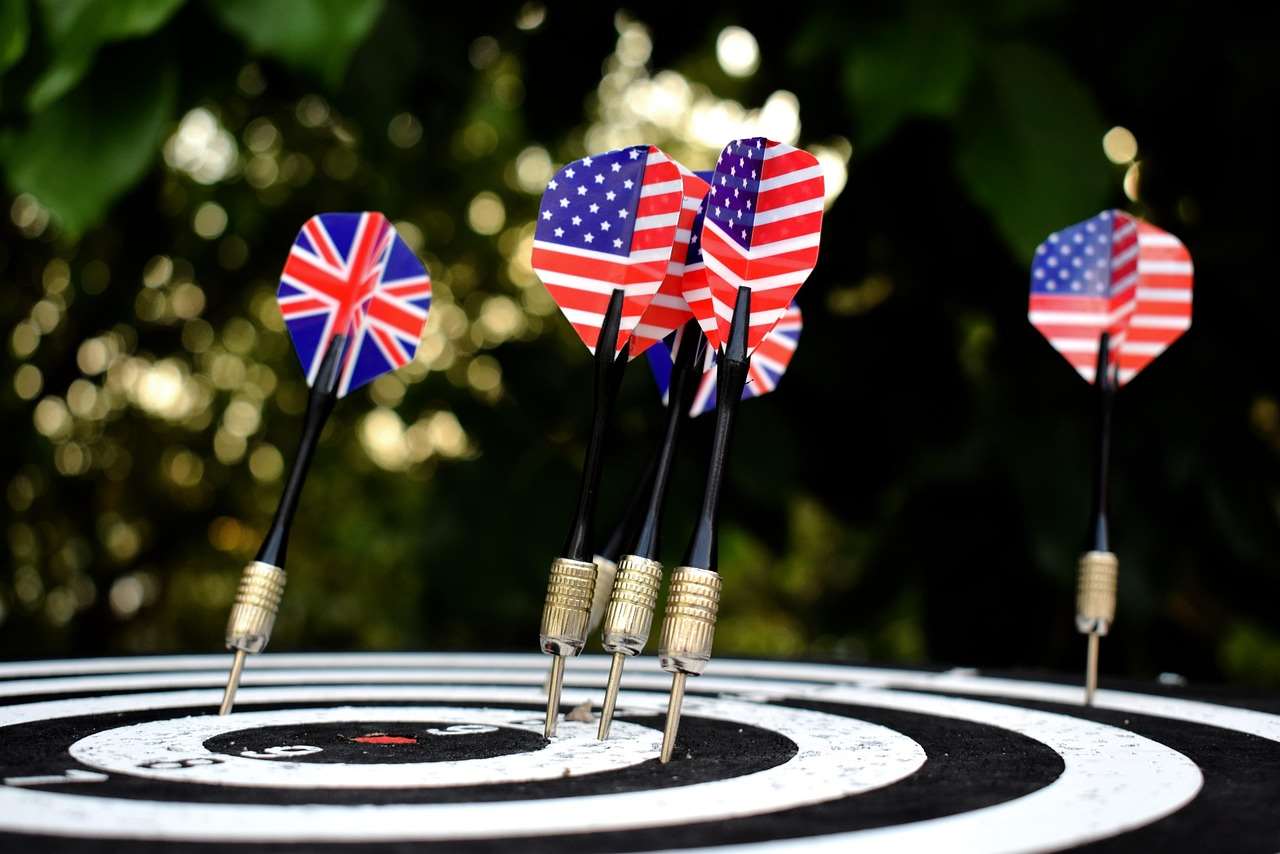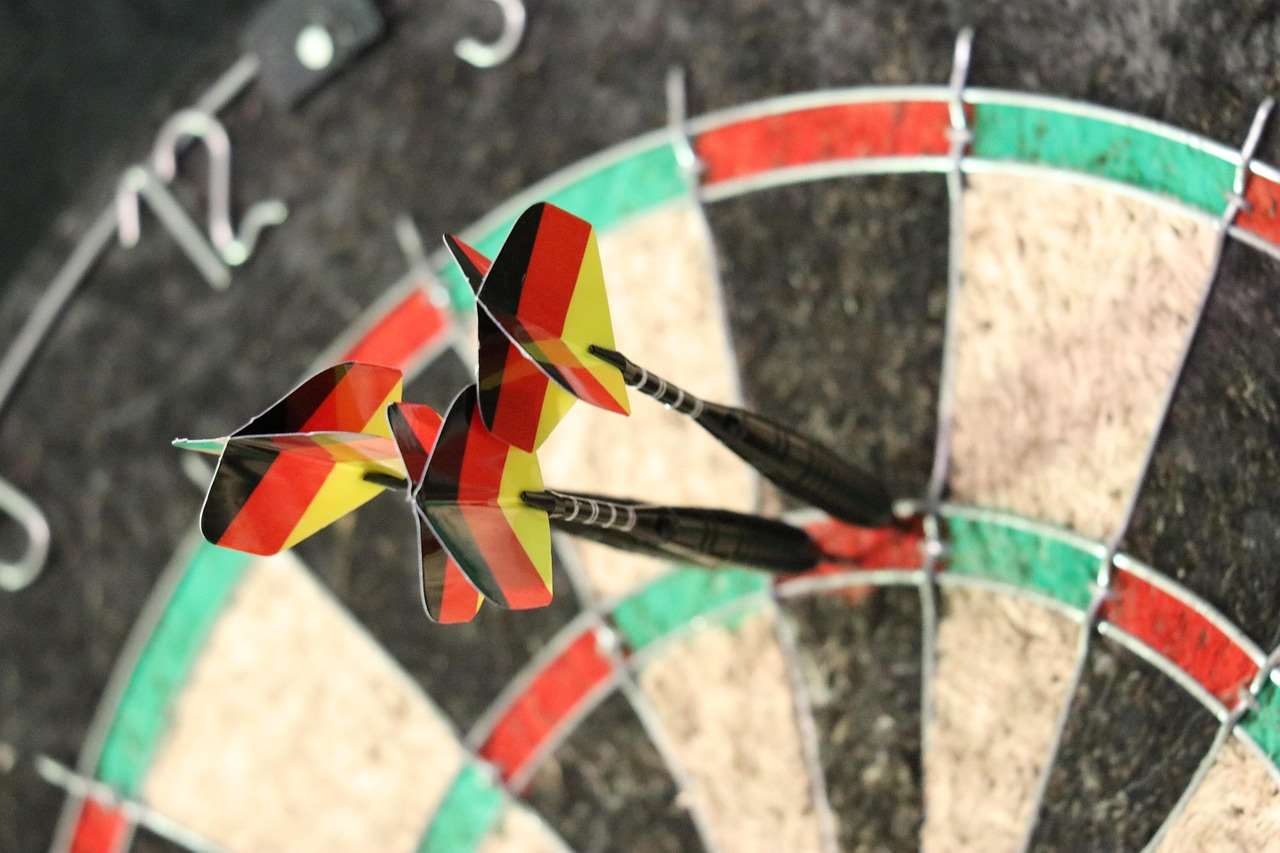Understanding the penalties for unsportsmanlike conduct in darts is crucial for maintaining fair play and respect within the game. This article will explore the various forms of misconduct, their corresponding penalties, and the governing bodies that enforce these rules, ensuring you’re well-versed in dart etiquette.
⚠️ Still Using Pen & Paper (or a Chalkboard)?! ⚠️
Step into the future! The Dart Counter App handles all the scoring, suggests checkouts, and tracks your stats automatically. It's easier than you think!
Try the Smart Dart Counter App FREE!Ready for an upgrade? Click above!
Understanding Unsportsmanlike Conduct in Darts
Unsportsmanlike conduct in any sport undermines the integrity of the game and the enjoyment of all participants. In darts, a game often played in close quarters and relying on concentration and respect, maintaining a professional and sportsmanlike attitude is paramount. This section delves into the specific actions that are considered unsportsmanlike and the rationale behind their prohibition.
Several behaviors fall under the umbrella of unsportsmanlike conduct. These can range from minor infractions, such as excessive celebration or distracting an opponent, to more serious offenses, like verbal abuse or tampering with equipment. The severity of the penalty usually corresponds with the severity and intent of the action.
Here’s a breakdown of common examples:
- Verbal Abuse: Directing insults, threats, or offensive language towards an opponent, referee, or spectator.
- Intimidation: Using aggressive body language or words to create a hostile environment for an opponent.
- Distracting Behavior: Intentionally making noise or movements to disrupt an opponent’s throw.
- Tampering with Equipment: Altering the dartboard, darts, or any other equipment in an unauthorized manner.
- Cheating: Deliberately miscounting scores or attempting to gain an unfair advantage.
- Disrespect towards Officials: Arguing with or disobeying the instructions of referees or tournament organizers.

Specific Penalties for Unsportsmanlike Conduct in Darts
The penalties for unsportsmanlike conduct in darts can vary depending on the governing body, the severity of the offense, and the tournament rules. However, there are some common penalties that are frequently applied. Understanding these potential repercussions is essential for all dart players, from casual enthusiasts to seasoned professionals. One might even consider adapting darts rules for beginners to minimize unintentional rule breaks.
Here are some common penalties:
- Warning: A verbal warning issued to the player for a minor offense. This is usually the first step in addressing unsportsmanlike behavior.
- Fine: A monetary penalty imposed on the player. The amount of the fine can vary depending on the severity of the offense and the tournament rules.
- Point Deduction: Deducting points from the player’s score. This can significantly impact the outcome of the game.
- Leg Forfeiture: Requiring the player to forfeit a leg of the match. This is a more severe penalty that can be applied for repeated or serious offenses.
- Match Forfeiture: Requiring the player to forfeit the entire match. This is a very serious penalty that is typically reserved for the most egregious examples of unsportsmanlike conduct.
- Suspension: Temporarily barring the player from participating in tournaments or leagues. The length of the suspension can vary depending on the severity of the offense.
- Expulsion: Permanently banning the player from participating in tournaments or leagues. This is the most severe penalty and is typically reserved for repeat offenders or for particularly egregious acts of unsportsmanlike conduct.
The specific penalties are often outlined in the tournament rules or code of conduct. It is the responsibility of each player to familiarize themselves with these rules before participating in any competition. It’s also beneficial to explore basic darts fundamentals for beginners, ensuring you’re familiar with common etiquette and rules.
Governing Bodies and Their Rules on Conduct
Different governing bodies oversee the sport of darts at various levels, and each has its own specific rules and regulations regarding player conduct. Understanding which organization is in charge of a particular tournament or league is crucial for knowing which rules apply. The Professional Darts Corporation (PDC) and the World Darts Federation (WDF) are two of the most prominent governing bodies. Familiarizing yourself with these organizations and their regulations will help you avoid inadvertent penalties for unsportsmanlike conduct in darts.
The Professional Darts Corporation (PDC)
The PDC is the leading professional darts organization, responsible for organizing major tournaments such as the World Darts Championship and the Premier League Darts. The PDC has a strict code of conduct that all players are expected to adhere to. This code covers a wide range of behaviors, including:
- Dress code
- On-stage behavior
- Social media conduct
- Respect for opponents and officials
The PDC has the authority to impose a range of penalties for violations of its code of conduct, including fines, suspensions, and expulsion.
The World Darts Federation (WDF)
The WDF is the international governing body for darts, responsible for overseeing the sport at the amateur level. The WDF also has a code of conduct that emphasizes fair play and respect. It is crucial for amateur players to understand that adhering to good sportsmanship is always the best approach, no matter your skill level.
While the WDF may have different levels of penalties, they still focus on maintaining the integrity of the game. Players should always check the specific rules of the event they are participating in to ensure they understand the expectations for conduct.

Appealing a Penalty
If a player believes they have been unfairly penalized for unsportsmanlike conduct, they may have the right to appeal the decision. The appeal process typically involves submitting a written statement to the tournament organizers or governing body, outlining the reasons why the penalty should be overturned. Knowing your rights in case of a dispute is just as important as understanding the rules themselves. Players sometimes explore alternative darts rules for home play, however, even in these scenarios, maintaining good sportsmanship is essential.
The appeals process can vary depending on the governing body and the tournament rules. Some organizations may have a formal appeals committee that reviews the case, while others may rely on the discretion of the tournament director. It is important to understand the specific appeals process before participating in any competition.
Here are some general tips for appealing a penalty:
- Act quickly: Submit your appeal as soon as possible after the penalty is imposed.
- Be clear and concise: Clearly explain why you believe the penalty was unfair.
- Provide evidence: If possible, provide evidence to support your claim, such as witness statements or video recordings.
- Be respectful: Maintain a respectful tone throughout the appeals process.
Preventing Unsportsmanlike Conduct
The best way to avoid penalties for unsportsmanlike conduct in darts is to prevent such behavior from occurring in the first place. Creating a culture of respect and fair play is essential for fostering a positive and enjoyable experience for all participants. This section will explore strategies for promoting sportsmanship and preventing misconduct.
Here are some tips for preventing unsportsmanlike conduct:
- Understand the rules: Make sure you are familiar with the rules of the game and the code of conduct.
- Respect your opponents: Treat your opponents with respect, even if you disagree with them.
- Control your emotions: Avoid letting your emotions get the better of you. Take a break if you are feeling frustrated or angry.
- Be a good sport: Win with humility and lose with grace.
- Set a good example: Encourage others to behave in a sportsmanlike manner.
- Intervene when necessary: If you see someone behaving in an unsportsmanlike manner, speak up and encourage them to stop.

Promoting sportsmanship starts with education. Ensure that players, especially newcomers, are aware of acceptable behavior. Remind them that darts, even in competitive settings, should be fun and respectful. These are the values that should be upheld regardless of whether you’re fun dart game variations with modified rules or strict competitive play.
Examples of Unsportsmanlike Conduct and Resulting Penalties
To further illustrate the practical application of these rules, let’s examine some real-world examples of unsportsmanlike conduct in darts and the penalties that were imposed.
Example 1: Verbal Abuse
During a major professional tournament, a player directed a string of insults towards his opponent after losing a crucial leg. The referee immediately intervened and issued a warning. However, the player continued his tirade, resulting in a fine and a leg forfeiture. This highlights the importance of controlling one’s emotions, especially in high-pressure situations.
Example 2: Distracting Behavior
In a local league match, a player repeatedly made distracting noises while his opponent was throwing. The opponent complained to the league official, who warned the offending player. When the distracting behavior continued, the player was ultimately disqualified from the match.

Example 3: Tampering with Equipment
A player was caught attempting to subtly alter the wiring on the dartboard to benefit his throwing angle. Upon discovery, he faced immediate disqualification from the tournament and a lengthy ban from future competitions.
The Importance of Fair Play in Darts
The integrity of darts hinges on maintaining fair play and upholding the principles of sportsmanship. The penalties for unsportsmanlike conduct in darts are not just punitive measures; they serve as a deterrent against behaviors that can tarnish the game’s reputation. By promoting a culture of respect, honesty, and ethical conduct, we can ensure that darts remains a sport that is enjoyed by players and fans alike. You can even explore how to make darts fairer with handicap rules to enhance the competitive aspect of the game.
Fair play encompasses more than just following the rules; it involves respecting your opponents, officials, and the spirit of the game. It means accepting both victory and defeat with grace, and conducting yourself with integrity both on and off the oche. It even means that even if you are adapting darts rules for small spaces to keep the sport available to those who don’t have the room for it, that you still make sure everyone is following the adapted rules.
The benefits of fair play extend beyond the individual player. When darts is played in a sportsmanlike manner, it creates a more positive and enjoyable experience for everyone involved. It also helps to promote the sport’s image and attract new players and fans.

Conclusion
Understanding and adhering to the rules regarding penalties for unsportsmanlike conduct in darts is vital for every player, from casual enthusiasts to seasoned professionals. By understanding the various forms of misconduct, the corresponding penalties, and the governing bodies that enforce these rules, you can contribute to a more positive and respectful environment within the sport. Remember, fair play and sportsmanship are the cornerstones of a truly enjoyable and competitive game. Now that you’re well-informed, put your knowledge into practice and uphold the spirit of darts! Take the time to review the rules of your next tournament or league, and always strive to conduct yourself with integrity and respect. Happy darting!
Hi, I’m Dieter, and I created Dartcounter (Dartcounterapp.com). My motivation wasn’t being a darts expert – quite the opposite! When I first started playing, I loved the game but found keeping accurate scores and tracking stats difficult and distracting.
I figured I couldn’t be the only one struggling with this. So, I decided to build a solution: an easy-to-use application that everyone, no matter their experience level, could use to manage scoring effortlessly.
My goal for Dartcounter was simple: let the app handle the numbers – the scoring, the averages, the stats, even checkout suggestions – so players could focus purely on their throw and enjoying the game. It began as a way to solve my own beginner’s problem, and I’m thrilled it has grown into a helpful tool for the wider darts community.